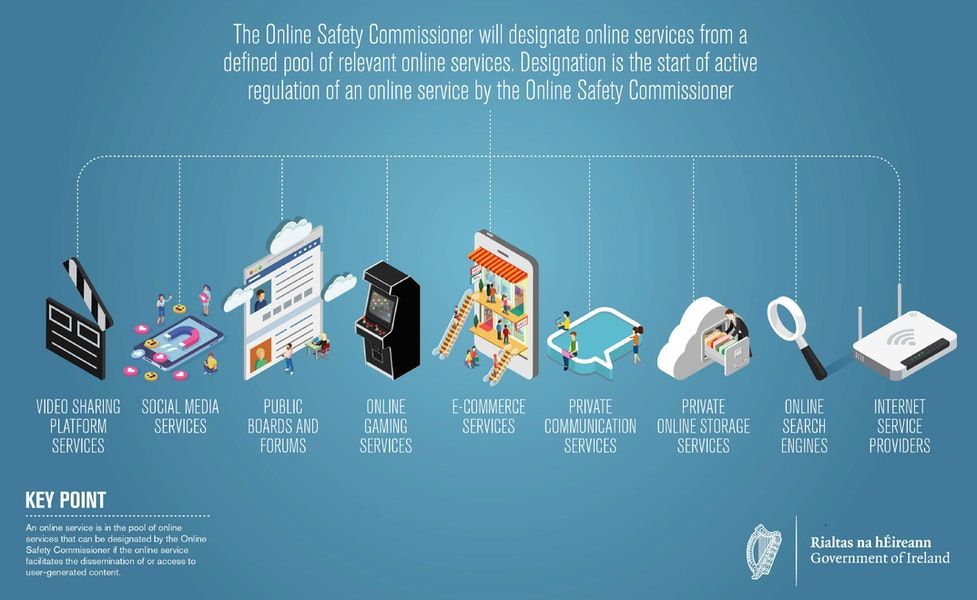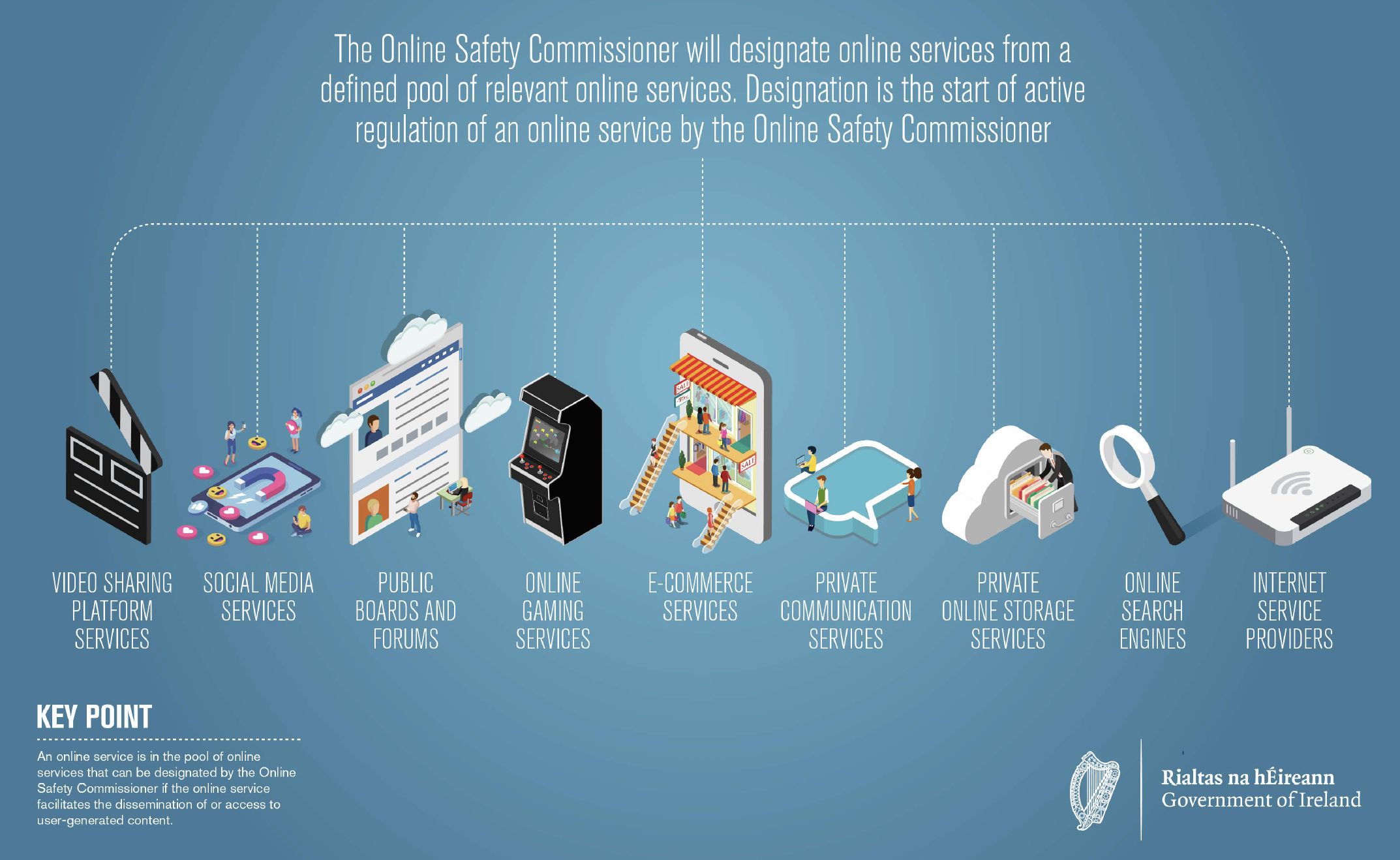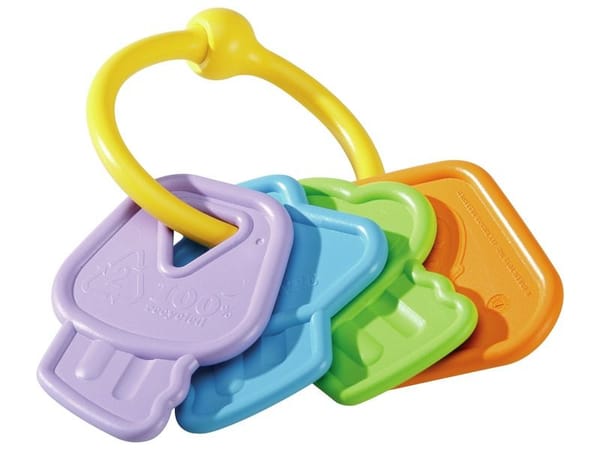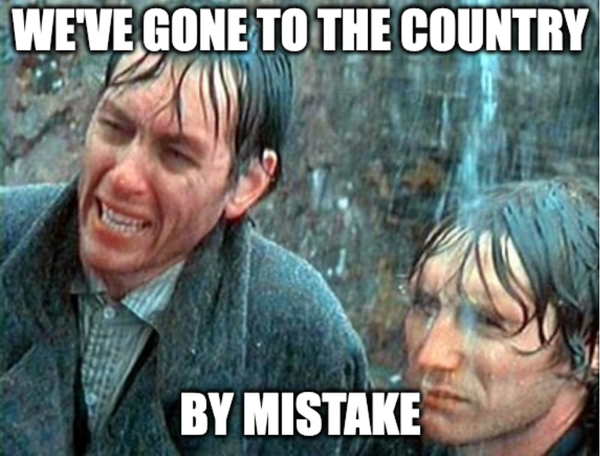The Gist: Should Ireland's Broadcasting Regulators rule the Internet?
In the pandemic turmoil, the plan for the Irish government to become a regulator of Internet content for much of the world has drifted under the radar. This is the Gist.

The Broadcasting Authority of Ireland has had a chequered past. Created by the 2009 Broadcasting Act, it is empowered to control the output of Ireland’s TV and Radio stations.
Its decisions have been regularly odd (eg in 2014, they found gay people talking about the hope of getting married wasn’t acceptable). Just this week, the Advertising Standards Authority of Ireland, on whose complaints board the BAI’s CEO sits, decided that an educational TV ad for tampons was generally offensive and shouldn’t be run again.
Like I say, odd.
But perhaps the oddest thing they did recently was their 2019 pitch to a receptive Government to become a Regulator for the Internet. Not just the internet in Ireland, but- because Ireland is home to most of the tech giants in the EU- the regulator for billions of people’s internet around the world.
The EU has a Directive on Audio-Video Services (Netflix, YouTube, Apple TV and so on) which has to be brought in by September 2020. The FG Government came up with the idea of yoking this perfectly anodyne piece of housekeeping legislation to another, home-grown idea, to regulate ‘harmful content’.
That has become the Online Safety and Media Regulation Bill 2019.
Without getting into the weeds too much, this proposed law is not great.
Here’s Trinity College Dublin’s Law Department’s Dr. Eoin O’Dell in January 2020 on the state of the legal drafting work;
“In its current form, important elements are dangerously vague, and there is an unpardonable oversight in the drafting… Despite the amount of time that this process has taken, these Heads seem rushed, vague, and incomplete.”
He cites, as one example, the fact that the Bill has forgotten to legislate for the creation of the Online Safety Commissioner it’s meant to empower.
“Given that the Online Safety Commissioner is the whole raison d’être of the Bill, the failure to establish it properly is a shocking omission.”
Obviously, this doesn’t instill a lot of confidence. But if we take a look at the Government’s current documentation around this Bill, the heart sinks further.
Here’s the government’s own image from June 2020, describing what will be regulated by this new BAI+ body.

If your eyes opened wider and wider as they panned across this galaxy of activities until they started to water as they reached “Private Communications Services” and “Private Online Storage Services” then you have probably spent more than 10 minutes online in your life.
Then you discover that Section 49A of the published Heads of Bill lists some content that the BAI-replacing Commissioner feels might be harmful, but, as the explanatory note states “It is not proposed to define harmful online content.” Oh, and that Section 49B provides for new kinds of content to be designated by the Minister as harmful online content in the future.
This is… I mean, Sir Humphry Appleby of Yes, Minister fame would probably have termed it ambitious. The rest of us might just say it is impossible.
But go beyond the nuts and bolts of whether the proposed act is legislatively fit for purpose, or whether its intended field of activities could be addressed by officials with mere mortal lifespans.
This is a law that seeks to create a body, built on the BAI, which can decide what can and cannot be published online- over and above what is rightly criminal to disseminate. It declines to define what is and is not covered and new things may be added. In doing so, it wishes to take in private communications services and private storage services and regulate them as it has regulated broadcast in the past.
This is a basic category error. It treats communications between private citizens as if they were just another form of licenced broadcast.
In its pitch for these powers to the Government, the BAI described the sort of power it wanted;
“The OSR [online safety regulator] should be able to issue HOC [harmful online content] Notices to both “open” online services (e.g. social media platforms) and “encrypted” online services (e.g. private messaging services).”
Leave aside the question of how the BAI thinks it will find out about the content of encrypted private messages. Any body who thinks it ought to treat online communications in the same way as it regulates broadcast media has demonstrated why it is unfit to do both, if not either.
My conversations with my friends are no business of a broadcasting regulator.
This Bill has now fallen under the responsibility of the Minister for Media, Tourism, Arts, Culture, Sport and the Gaeltacht, Catherine Martin. As her title might suggest, she will have a lots of disparate things looking for her attention. But she ought to perform one of the most vital of ministerial functions with this Bill.
She should shout stop.
The Government should pass the bits needed to give effect to the unobjectionable Audio-Visual Services Directive and drop the rest. Regulating the internet isn’t something to be rushed. It is something to be done right, where it should be done at all.
And, where it is to be done, it should be done by institutions with the right experiences and instincts for the job.
That’s not the BAI and it never will be, no matter what their new name.



